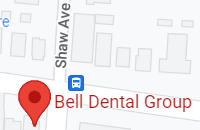If it were up to us, no one would ever have oral cancer.
Unfortunately, this year health experts estimate that more than 51,000 Americans will be diagnosed with one form of this disease or another, according to the Oral Cancer Foundation.
Sadder still, one person dies of oral cancer every hour on average in the United States.
It doesn’t have to be this way. Early detection can greatly improve your chances of beating this disease. So can making good decisions about your health.
One small thing you can do could make a big difference. Make regular appointments for dental exams at Bell Dental Group in Cincinnati, OH. We conduct oral cancer screenings for our patients. We don’t want to find anything, but we would much rather find symptoms as soon as possible.
Call 513-802-9440 today if you not yet scheduled your next appointment. It just might save your life.
Signs & Symptoms
When you visit us for a dental exam, we will be looking for things like bleeding gums (a sign of gum disease) and dark spots on teeth (a sign of tooth decay).
But we will also be looking for these things:
- White patches on the soft tissues of your mouth
- Red patches on the soft tissues of your mouth
- Lumps in your neck, throat, or soft tissue of your mouth
- Sores that bleed easily and do not appear to be healing
- Problems chewing or swallowing
- Persistent hoarseness
- Persistent sore throat
Now, these symptoms don’t necessarily mean that you have oral cancer. However, it would be a good idea to talk to your doctor if you are experiencing any of them.
As we noted in the opening, early detection is invaluable when it comes to oral cancer.
The Oral Cancer Foundation has noted that the survival rate is 57 percent when oral cancer is detected in its late stages, which unfortunately is when most oral cancer is discovered. The survival rate is 80 to 90 percent for patients whose oral cancer is detected in the early stages.
This is just one of the reason we encourage you to make regular visits to Bell Dental Group, and to conduct self-exams when possible. (If you have dentures, you should remove them before doing a self-exam.)
Tobacco & Alcohol
The single best thing you can do to help prevent oral cancer is to avoid tobacco. Don’t smoke. Don’t dip. Don’t chew. Don’t “vape,” either.
Tobacco use is the single biggest risk factor for oral (and many other types of) cancer. And while it may be obvious, we want to stress that your risk increases the longer you use tobacco and the more tobacco you use.
More than 70 chemicals that are known to cause cancer have been identified in tobacco products. They are simply dangerous for your health.
Getting support can be one of the most important steps you can take in quitting tobacco. The Ohio Department of Health is a good place to start. Call their quitline — 1-800-QUIT-NOW — to get started.
Heavy alcohol consumption is the second most common risk factor for oral cancer. This has been defined as 21 or more drinks per week. Having a beer now and then after doing work on the yard or a glass of wine with dinner probably won’t be a problem.
However, if you choose to use tobacco and consume alcohol, you are compounding your risk considerably. Your mouth will absorb the chemicals from tobacco faster when your mouth is dry, and alcohol has a tendency to cause dry mouth.
HPV
The human papillomavirus is a risk factor that has been on the rise in recent years. The Centers for Disease Control notes that 80 percent of the population will contract this virus during their lives.
This good news is that in 99 out of every 100 people who get it, HPV has little or no effect on their health. But for that 1 in 100, HPV has the potential to be deadly. It can cause oral and cervical cancer.
For this reason, we encourage you to talk to your family doctor about whether the HPV vaccine is a good option for members of your family.
Visit Us Soon
We hope you will visit Bell Dental Group soon and for years to come. Call 513-802-9440 or Contact us online to request your appointment. It’s never too early to schedule a dental exam, including an oral cancer screening.
Visit Bell Dental Group
We can see you as soon as tomorrow!





